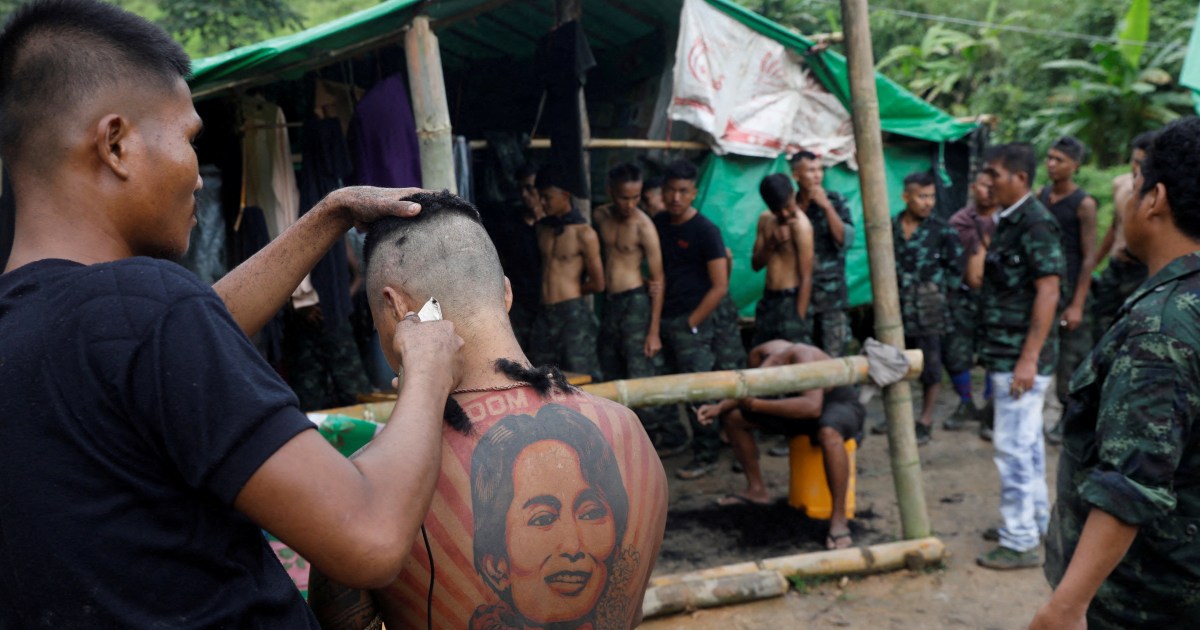Top Pakistan Taliban leader killed in Afghanistan roadside attack
Abdul Wali, also known as Omar Khalid Khorasani, was allegedly behind some of the deadliest attacks in Pakistan in recent years.
A late night roadside bombing in eastern Afghanistan has struck a vehicle carrying members of the Pakistan Taliban, killing a senior leader and three other members of the group, several Pakistani officials and the group said.
Abdul Wali, also known as Omar Khalid Khorasani, was a top commander of the Pakistan Taliban and was allegedly behind some of the deadliest attacks in recent years.
Wali’s vehicle was struck on Sunday night by a roadside bomb in the Afghan province of Paktika, along the border with Pakistan, according to Pakistani officials and the TTP members who spoke on condition of anonymity to The Associated Press news agency.
The three other men who were killed included his driver and two of his close aides, they said.
Wali’s death delivers a big blow to the armed group, known formally as the Tehreek-e-Taliban Pakistan (TTP), and comes a week after a US drone raid in Kabul killed al-Qaeda chief Ayman al-Zawahiri.
No one immediately claimed responsibility for the Sunday night killing of Wali, who was on the US State Department’s most-wanted list and carried a reward of up to $3m for information on his whereabouts.
Pakistan Taliban on Monday confirmed the killing and blamed Pakistani intelligence agents for it, without offering evidence or elaborating.
A longer statement from the TTP is expected later on Monday.
Wali is thought to have been close to al-Qaeda founding leader Osama bin Laden and al-Zawahiri but it was not immediately known if there was any link between the August 1 drone attack and Sunday night’s bombing.
In 2014, Wali broke away from TTP and formed his own group, Jamaat-ul-Ahrar, which carried out some of the deadliest attacks in Pakistan, including a bombing in the eastern city of Lahore in 2016 that killed at least 75 people from the minority Christian community on Easter Sunday.
The group also claimed responsibility for killing two Pakistani employees of the US Consulate in the northwestern city of Peshawar in March 2016.
Khorasani later dissolved Jamaat-ul-Ahrar and rejoined the TTP in the group’s drive to reunify several estranged groups.
The US State Department described him as a former journalist and poet who studied at several religious schools in Pakistan.
There has been a fragile truce between Islamabad and the TTP for the past two months as peace talks brokered by the Afghan Taliban’s Haqqani network take place.
The TTP has launched armed attacks in Pakistan during the past 14 years, fighting for stricter enforcement of Islamic laws in the country, the release of their members who are in government custody and a reduction of the Pakistani military presence in the country’s tribal-dominated regions.
The group has killed nearly 80,000 Pakistanis in almost two decades of violence, according to official estimates.
Islamabad has demanded that the new Taliban rulers next door prevent armed groups from using Afghan territory for attacks inside Pakistan.
Before the Taliban takeover in Afghanistan, Islamabad and Kabul often traded blame and accused each other of sheltering armed groups.
Pakistan says it has finished the construction of more than 93 percent of a fence along the border with Afghanistan to prevent cross-border attacks.




